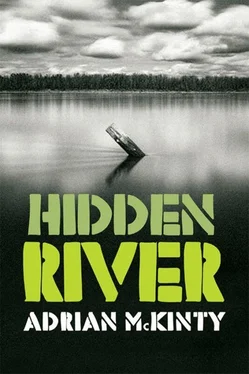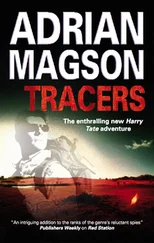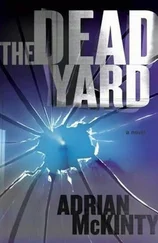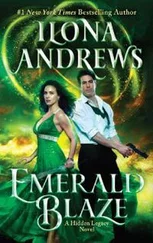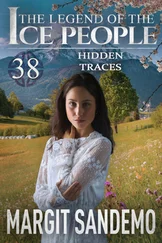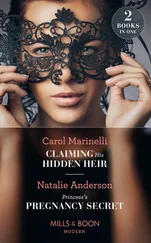Rain guttering down Facey’s broken window wiper. The funeral procession. Facey dipping the clutch, stalling the car. Out along the sea front. White water on the lough. Black clouds. The turn up Downshire Road. The graveyard. Exiting. Hats on, umbrellas up and sucked outward by the wind. Cars parked. Only the men walking to the graveside. The women, as is traditional in Protestant Ulster, outside the cemetery gates or at home preparing the wake.
The graves. Markings. Pictures on some. Wet flowers on others. Pitiful messages over children. And that one grave. The saddest here. Don’t even look down that row. Don’t even look. Visited it three times in six years. Pain. Numbing. Panic rising in my throat. A flash to that bed in the hospital, Mum on full meds, the pain racking her body, just me and her. Oh, God. John and Facey still beside me. I lean on John for a moment to steady myself.
Mr. Patawasti, Colin and Stephen Patawasti and an uncle I don’t know carrying the coffin. Slipping in the mud with that deadweight inside the box. The story’s out now. Victoria murdered by a Mexican burglar at her apartment in Denver. So pointless. Such a waste.
Mist on the hills. The Knockagh from the side in pale loops of gray and green. A smell. Damp earth. Around the graveyard the dungy aroma of a churned field. The service. The priest’s white cassock sodden and blowing around his face. Sixty men soaked in their dark suits. No one can hear what the priest says.
It belatedly dawns on me. This is a Christian burial. She was a Christian. All that Hindu mythology had been what? A pose? An embrace of the exotic in dyadic, sectarian Ulster.
Oh, Victoria. We are so similar. Can you not see, you there, the rain hammering off your coffin top, your brothers stumbling on the earth. We are so alike. You, the third child, the last born, the youngest. You and I, both of ancient peoples, alien here in this atavistic god-intoxicated land. You and I, the punch line of a joke. We both have failed. You are dead and I am a specter of a man. I look away. Down from the Knockagh, the forest and the beginnings of the town.
Stand still and gaze anywhere but the fourth row.
The cemetery is pitched on the high ground above the main body of Carrickfergus. Winds coming down from the Antrim Plateau and up from the lough. John complains about the rain and he and Facey move discreetly toward the lone tree.
“We commend to Almighty God our daughter,” the priest must be saying. “Ashes to ashes.” And they try to lower the coffin but the rainwater has caved in earth on either side of the grave, and it won’t go down. Mr. Patawasti asks them to try again. They attempt it three more times but she will not go.
I remember that. Stubborn, proud, the only dark-skinned girl in a school of six hundred. Captain of the debate and field hockey teams.
Everyone is getting soaked. Mr. Patawasti says that that’s enough. He walks off with his two sons and the uncle and my da and other members of the disbanded cricket club. Great solace you will be, Da. Don’t think I didn’t see you sneak on your yarmulke. Hypocrite. Did you say Kaddish that previous burial? Did you convince us that she would live again, somehow? Did you offer us one ounce of comfort? “Your mother’s gone for good, but her memory lives inside of us.” I needed more than that, you bastard. They walk right past me. And oh God, Mr. Patawasti is coming right over with Da. I back up against a gravestone. I want to run. He opens his mouth to say something but he doesn’t. His face is torn apart, his eyes vacant. The skull showing beneath the skin. He looks like the subject of the funeral, not one of the mourners. It’s horrific. He stares at me for a second and then the party moves on. Dad looks at me and nods.
They make their way back to the cars. I stand in the shelter of the tree, shaking, waiting for the weather to break. The gravediggers leave, the cemetery keeper leaves. The coffin sits there by the grave, rain pattering on the name plaque and the memories. I walk over. The wreaths, a dozen or more. The biggest one from America: “From all at CAW, fond memories of a wonderful person — Charles, Amber, and Robert Mulholland.”
I look down the pale lough. I can imagine the Viking boats, like this coffin, shaped from pine or spruce. A boat carved from pine dissolving into the bog of the next world.
“Come on,” John says, “we might as well make a dash for the car, this is going to be on all day.”
“What is?”
“The rain.”
“We’ll go to the pub,” Facey says.
Go to the car, like a sleepwalker. Get in, drive to Carrick. John talking to Facey in the front. Someone has bought the Triumph brand name, will be making them, again. Motorcycles. Nonsense. John, Facey, why can’t you see the ocean of pain around you? Tribulation falling from the skies. Did you ever read the Venerable Bede? Of course not. Life is like a bird at night, flying into a great hall full of feasting, behind is darkness, ahead is darkness, the journey through the wonder, brief, bewildering, awful, done.
“We’re here,” Facey says, takes the keys from the ignition, turns around, grins, “we’re here.” Aye…
The fire in Dolan’s was lit and I stood there drying out my wet funeral-and-interview suit. A cold, nasty day but the fire helped a lot. I dried off and got some crisps from the bar. John supplied the information about the Christian burial. The Patawastis had been high-caste Hindus from Allah-abad, India. But Mr. Patawasti and his brother had both been sent to public school in London at an early age and both had gradually fallen under the somnambulant spell of the Church of England.
After school Mr. Patawasti had gone to Oxford, married an English girl, had two sons, got offered a lectureship in physics and applied maths at the University of Ulster, and had moved to Northern Ireland, just in time for the start of the Troubles in 1967.
“Maths, eh?” I said to John. Typical. Another thing apart from cricket and vegetarianism he had in common with my da. Cricket, vegetarianism, and maths, surely the three most boring things in the world.
We talked about Victoria but the boys knew I’d gone out with her and were restrained. I got up to go, Facey offered me a lift. But I was having none of it.
Soaked to the skin, I arrived at the back door of our house. Dad in the kitchen, nervous, upset. He had changed out of his drenched suit into sweatshirt and jeans. The sweatshirt said “Save the Rainforest” on it and had a picture of a leaping whale. You wouldn’t have thought the rain forest supported many whales but maybe that was why it needed saving.
“What is it?” I asked him.
“There’s a man waiting for you in the living room. An Englishman. Are you in some kind of trouble?”
“Not that I know of,” I said.
I pulled down the ladder and went up to my bedroom in the attic. Hundreds of my old books. Teenage manifestations. The Catcher in the Rye, L’Etranger, The Outsiders . Records, train sets. I grabbed a dressing gown and sweatpants, sat there, amid the dust. I was glad now I’d come home. I’d had a flat at the marina. I’d done it in pastels, big black stereo, a couple of chairs, minimalism. Not many books. A few choice records and CDs. A guitar. I wanted to impress girls with the Zen-like tranquillity of pure being. No clutter. A lie, of course. Here, despite the filth, I was more at ease. I could pull up the ladder and climb under the duvet and no one would ever get me. I could stay here, and the autumn would come and then the winter. Snow would pile up on the window ledge. I’d stay here, safe and warm until Mum yelled at me and got the hook and pulled down the ladder and brought up hot chocolate and digestive biscuits. Yes.
I shook my head, rejected the mawkishness, climbed down the ladder, walked across the hall and into the living room.
Читать дальше
